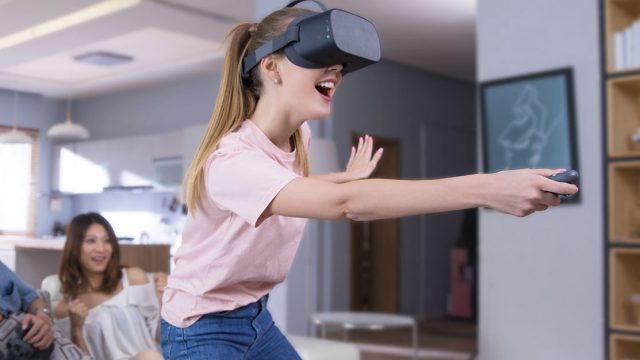Following rumors that it was poised to be acquired by TikTok parent company ByteDance, VR headset maker Pico has confirmed the purchase, according to reporting by Chinese VR publication Nweon. The acquisition price hasn’t been officially announced but is rumored to be ¥5 billion (~$775 million).
Update (August 30th, 2021): After rumors began swirling late last week, Chinese VR publication Nweon says that an internal Pico memo has confirmed the acquisition by ByteDance. VR Tuoluo is reporting a rumored cost of ¥5 billion (~$775 million) for the acquisition, though an official figure hasn’t been confirmed.
At $775 million the purchase would still be well short of the $2.4 billion Facebook paid for Oculus in 2014, but it would still be a landmark acquisition in the history of VR.
The original article, which covers the initial rumors of the acquisition last week, continues below.
In a move that in some ways parallels Facebook’s acquisition of Oculus in 2014, TikTok parent company ByteDance is looking to buy Pico—the VR headset maker behind headsets like the standalone Neo 3 and G2 4K—according to a report by Bloomberg citing a source “familiar with the matter.”
According to the report, talks about an acquisition are ongoing and a final decision hasn’t been made.
Chinese VR news publication Nweon reports that due diligence for the deal was happening as far back as June. If that’s true, and the deal discussion is still ongoing, it suggests the deal is quite far along and could be nearing a conclusion.
Founded in 2015, Pico claims to have more than 300 employees around the world. The company has raised some $66 million in venture capital to date, with its most recent round just earlier this year.
While the Pico is best known in the Western VR market as a maker of enterprise VR headsets, the company has ambitions to compete with Facebook and the likes of Quest in the consumer market as well. A consumer angle seems like the likely approach for ByteDance which is largely built around consumer-focused applications.


